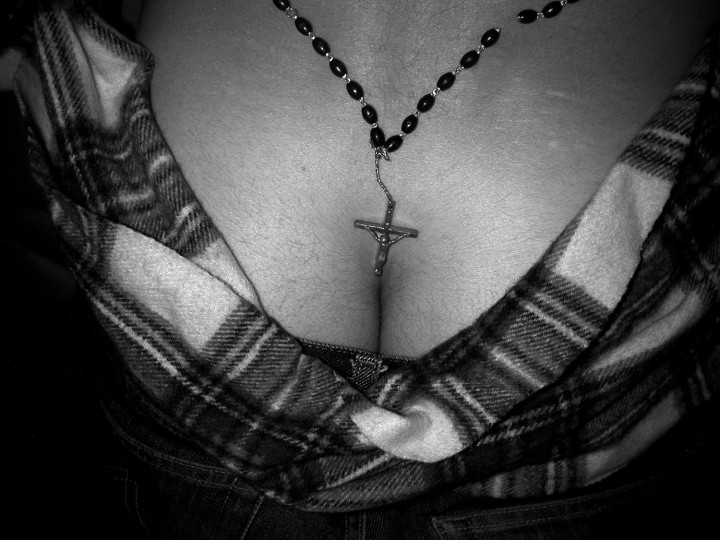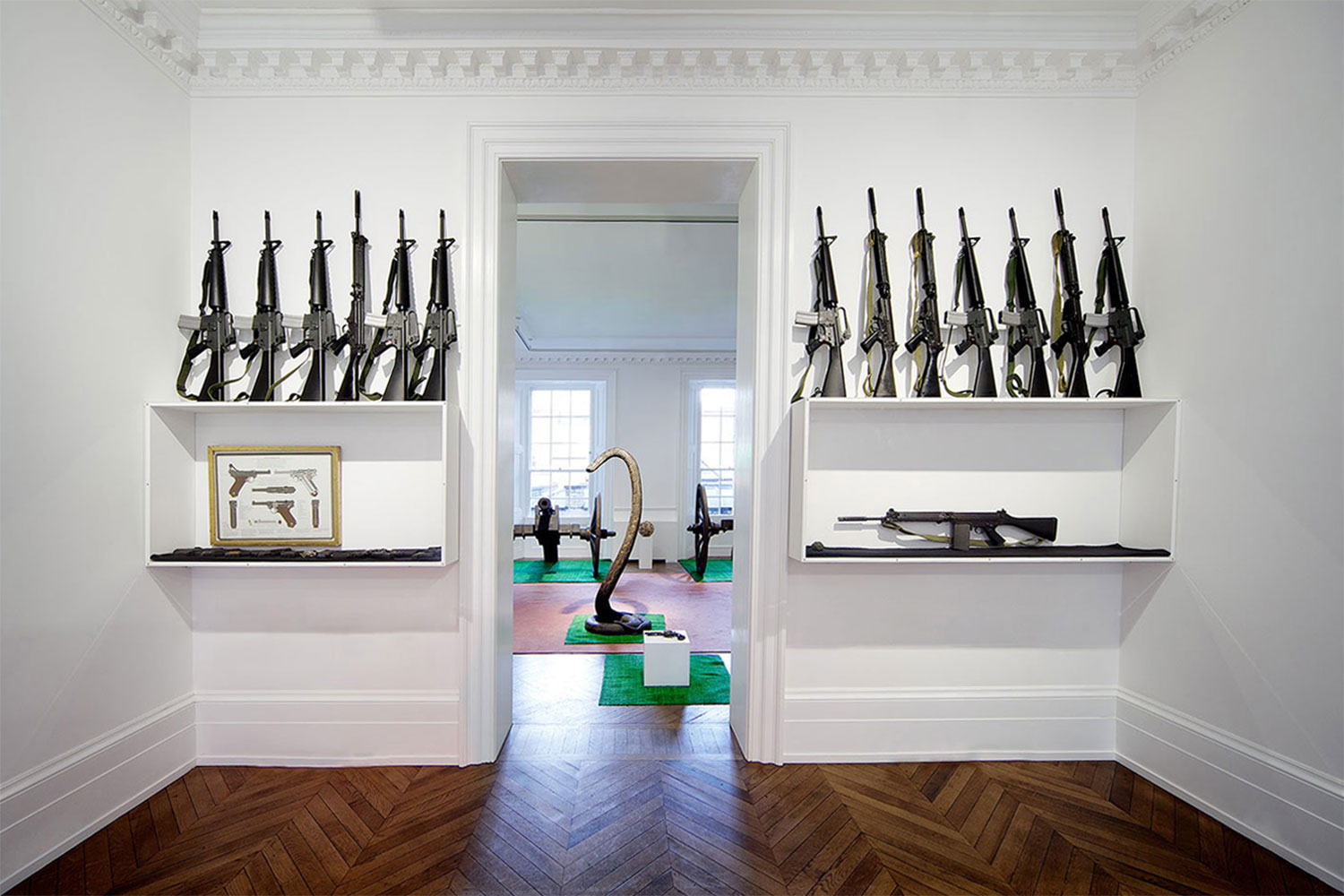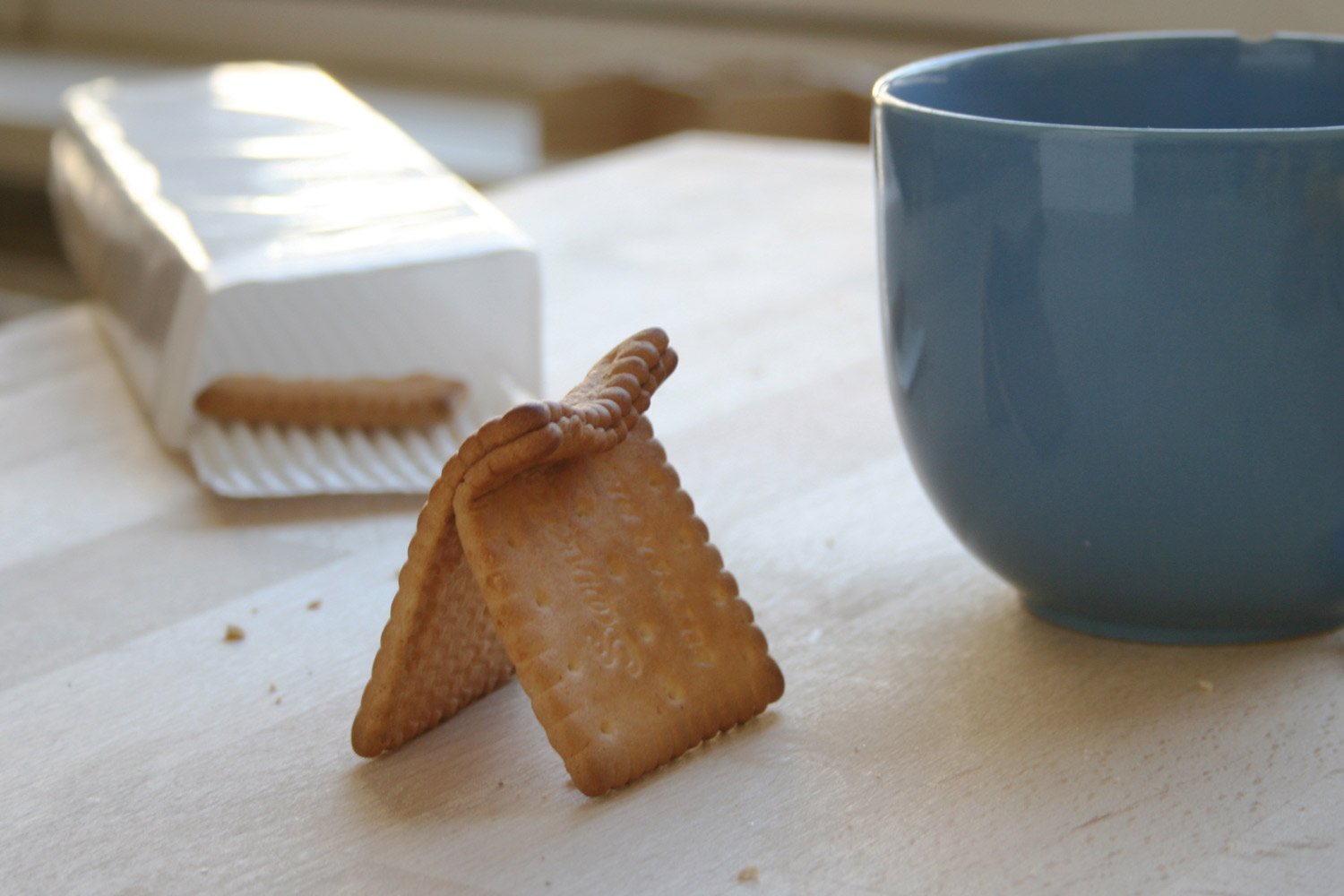
“I have a big philosophical problem with the fact that everybody always has their own opinion in TV, in the press; everyone is so self-convinced that they think their opinion is worth being spread out. I am totally against this. The form of an interview where I answer questions in a conversation and there is an interaction where I can explain myself is good, but putting out only statements is not satisfying to me. So, I have tried to turn the interview into some sort of surrealistic poem.”
David Renggli
Samuele Menin: Your work seems to be highly ironic. Which role does irony really play in your approach to art?
David Renggli: Yes, iron and different kind of metals are very interesting, they allow one to make very tiny connections.
SM: You’ve been also playing in a band. In your opinion, what’s the difference between being a musician and being an artist?
DR: My band was very cool. If you’re a musician, you can have much more fun, get more adrenalin, and have much more light.
SM: Some iconographic elements like bike frames or stairs are recurrent in your work. Does their repetition have a particular value for you?
DR: No, they are just some icons like others. I use them for making icon collages.
SM: All of your works, included your installations, look like collage…
DR: Sometimes I watch television and think, “Why does everyone have an opinion on everything?” It would be much more refreshing if it was not so important.
SM: Many of your installations look like the incipit or, better, the ideal scenery for some fairy tales. Have you ever tried to picture in your mind any story to be set there?
DR: I imagine my work better than it actually is.
SM: Your titles play an important role as well; they’re always highly descriptive, as for example Berlusconi e Veronica Lario si preparano per il divorzio. How do they come to life, and what kind of relationship do they have with the works they stand for?

DR: In this case, it has to do with the piece. It is a spinning disk on which there is a picture of Silvio and Veronica, but because it turns you can not see it. The title is the image.
SM: I think that most of your works draw on a kind of a Swiss tradition and iconography, being that Switzerland is your homeland. What do you think?
DR: A title is more important than the work. Maybe we should find a new title for Switzerland, maybe it’s different then. For example, we could call it China, or Hawaii.
SM: In your installations the light plays an important role. What does it mean to you?
DR: There are animals who do not need light to see; they can see in the dark.
SM: You usually take care of any details in your exhibitions with such attention that every time you heavily transform the space, making it yours.
DR: Some spaces are very good, some others need more care.
SM: You often collaborate with other artists…
DR: They are just friends or people who have better ideas than me.
SM: To realize your new works, you often modify and remake your old ones, or you recycle their material. Don’t you think that it could negate the so-called ‘sacredness’ of art?
DR: In Switzerland, religion is not so important.





